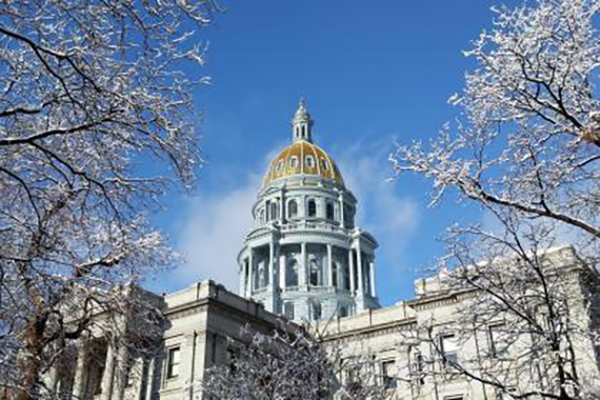After a couple of delayed starts, the legislature reconvened on May 26 with large ambitions and a small window of opportunity to complete its ambitious agenda. With a stated intent to wrap up its work in three week, despite having as much as 50 days left in the 120 day session, legislators began eliminating bills with large (or even small) price tags as well as some that would bring controversy and large crowds to the Capitol. Legislation dealing with guns, family leave, and health care were either pulled back by sponsors, by a committee vote to “postpone indefinitely” or delaying action until a far-away date (December 31). To replace those, however, we see a plethora of new bills, not entirely without controversy, to take their place. What is amazing is the speed with which they are moving forward.
Legislators still plan to go home soon, possibly as soon as June 12 or June 18. Bills awaiting committee action are assigned to three committees for hearing: State Affairs, Finance, and Appropriations. Floor votes follow quickly within a day or two of committee action. Several new proposals by CDPHE are being introduced with limited stakeholder involvement prior to arriving at the Capitol. Among those are: a dredge and fill permit program (to fill the “gap” in the new federal WOTUS rule); a PFAS and hazardous substance response fund; and an Air Quality funding Enterprise. In addition, a package of social welfare proposals tied to the current coronavirus pandemic and the economic results is also under consideration to provide unemployment and workers’ comp benefits to essential employees affected by the virus as well as financial assistance with rent and utility bill. The Long Bill (state budget) has passed both chambers. In addition, new taxes are being proposed via repeal of various credits and exemptions as well as direct taxes (not yet introduced).
Adding to the unprecedented mix of outside events influencing legislation are the tragic death of a Minnesota man in police custody which resulted in demonstrations and riots across the U.S., including a two-day suspension of activities at the Colorado Capitol when extensive damage was inflicted on the Capitol and surrounding state buildings.
Internal procedures at the Capitol to prevent the spread of the virus also have changed the dynamic of legislation. Legislators in the House are separated by various plexiglass partitions. Some members are seated in the House Gallery with microphones to register their votes when called upon. A few who are immunocompromised and cannot be exposed to crowds on medical advice are working remotely and, under new rules, are voting on bills via electronic conferencing platforms. Legislators and staff (as well as any member of the public who ventures into the building) are advised to maintain a minimum six-foot space between themselves and another individual. Comments on bills have been provided through a web portal to committee members, as well as through texts, emails, and telephone calls. Only a portion of the legislative staff works on site; the rest are working remotely while providing research and drafting assistance to legislators.
There was virtually no public testimony on legislation until a day ago, when a controversial law enforcement bill was heard. That bill, concerning sweeping police reforms, brought in several members of the public and law enforcement officials, so future committees may see more individuals entering the Capitol despite the stringent new requirements for temperature checks, physical distancing requirements and limited access to legislators. Similarly, on Sunday, June 7 a controversial vaccination bill brought 1,000 people to the Capitol, many without masks, who stood inside the building shouting and raising the potential for exposure.
The “Cliffs Notes” version of Capitol activity is this: in legitimately responding to a public health emergency and suspending the legislative session for two months, the legislature opened the door to a host of new bills that will likely be adopted with little stakeholder involvement, no vetting by regulated industries and communities, and little opportunity for meaningful public input as everyone is forced to continue social distancing. The 2020 legislative session may go down in history not only as one filled with lengthy interruption and a multi-billion dollar budget shortfall, but one in which an unusually broad range of new law was adopted with an incredible lack of analysis regarding unforeseen consequences.







